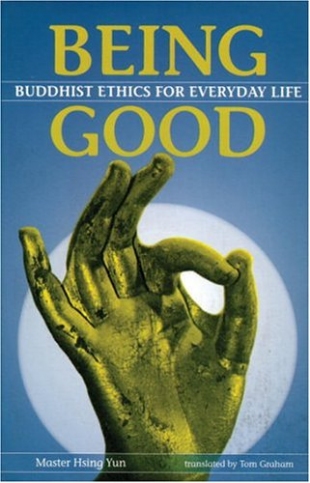"Faith begins like a sprout in a field. If it receives proper amounts of sun and water, it will grow strong and healthy. If it does not receive the nourishment it needs, then it will wither and die. Just like a sprout in a field, faith is vulnerable and easily harmed. If we associate with the wrong kinds of people or if we constantly subject our awakening minds to the corrosions of doubt, our faiths may soon be destroyed. Virtue is sensitive and faith is wise. As we begin to feel the inklings of wisdom and faith we must be careful not to allow ourselves to be overwhelmed by a corresponding increase in sensitivity toward the world around us. There is an old saying that expresses this point well: 'When the moral nature rises one foot, the defilements which surround it rise ten feet.' Faith, as with all virtue, must be protected and nourished.
"Faith can be increased in the following ways:
- Though the paranormal. Visions of Buddha or the bodhisattvas, paranormal occurrences, and mystical intimations of higher levels of reality are common in Buddhist history. Practitioners should not seek these sorts of experiences, but if one should occur, it should be taken as a stimulant and encouragement to greater faith and greater dedication.
- Through virtue. Virtue is the finest thing in all of life. Once we begin to understand that all goodness springs from virtue, then our faith will be increased. Our understanding will improve once we know that true growth can only be attained though study of the Dharma
- Through compassion. To understand compassion, we must behave compassionately. Once we have witnessed the effects of compassion and once we have seen the joy it produces, we will understand very deeply that enlightenment is compassion this understanding gives rise to immense faith in the Dharma.
- Though wisdom. Wisdom is not the same as intelligence and it has nothing to do with the vanity and cleverness which typify samsaric thinking. In its early stages wisdom manifests as faith; we call it faith because it knows with a power that transcends any reason the mind can give that the Dharma is true and that only it can give rise to complete joy.
- Through experience. The longer we uphold the precepts of Buddhism, the easier it will be for us to see that the Buddha did not lie. Faith in his teachings can only grow though experience.
- Through seeing the nature of things. The true nature of all sentient beings is Buddha nature. One glimpse of this truth produces a faith that can never again be shaken.
"Faith is especially important when we first begin to practice Buddhism, but the importance of faith does not decrease very much after that. Even though we may be sure of the validity of the Dharma, it is still important for us to rely on faith, for we cannot rise to the next level of realization unless we are sure that that level is there.
"Faith to a practitioner is like sun and water to a plant; in the beginning these factors are extremely important and they remain necessary throughout the life of the organism. Faith is that factor that constantly allows us to reach beyond ourselves. Faith shows us again and again that the only path in Buddhism is the path of constant growth.
How to increase the faith of others
"The highest form of giving is to give the Dharma. The core of any gift of the Dharma is to give faith in the Dharma to others. Once there is faith, all else will follow. The best way to increase the faith of others is to exhibit it in our own lives. When others see us change for the better due to our practice of Buddhism, their faith in the Dharma will be increased.
"When we knowingly attempt to impart the joys of faith to others, we are employing upaya, or expedient methods. Since faith is based on a nonverbal tremor within the being, it cannot be transmitted though mundane techniques of persuasion or through rational explanations. Rational explanations may serve as powerful aids in the transmission of faith from one person to another, but in the end it will be our humility, our compassion, and the firm example of our own faith that will have the greatest influence on other people.
"While faith can only take root in a person through that person's receptivity, still it must be remembered that the Dharma exists today only because it has been transmitted form one person to another across national borders through centuries of time. We must respect others and allow them to hold their own beliefs, but we should also remember that we ourselves have been blessed with the Dharma only through the labor and compassionate sharing of others.
"There is a saying, 'Wisdom alone will not lead us to understanding if no one tell us the Dharma.'
"In the Mahaparinirvana Sutra, the Buddha says:
"if one hundred thousand lamps
are lighted in a single room,
each one will be brilliant
and none will interfere with the others.
The interplay between the self and others
and between me and others is just like this."
